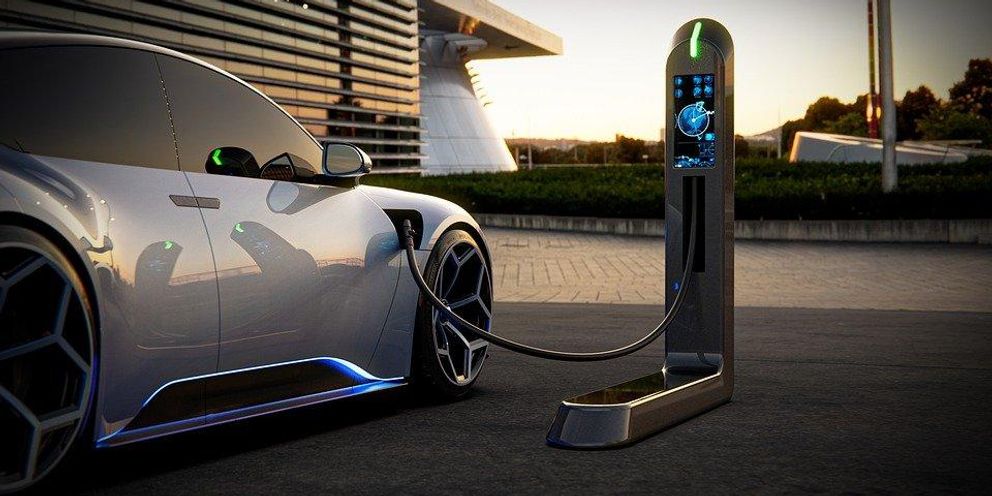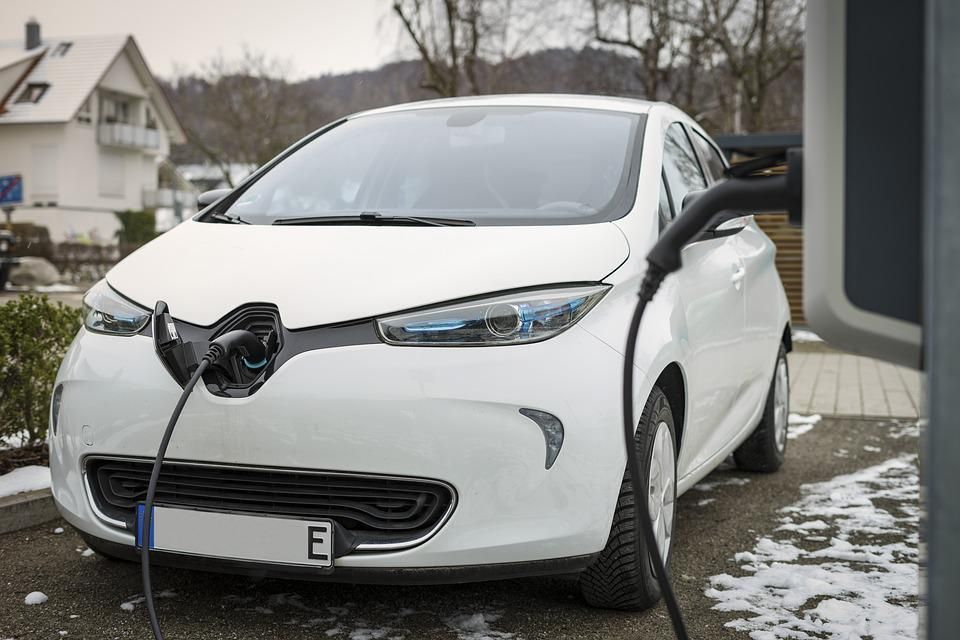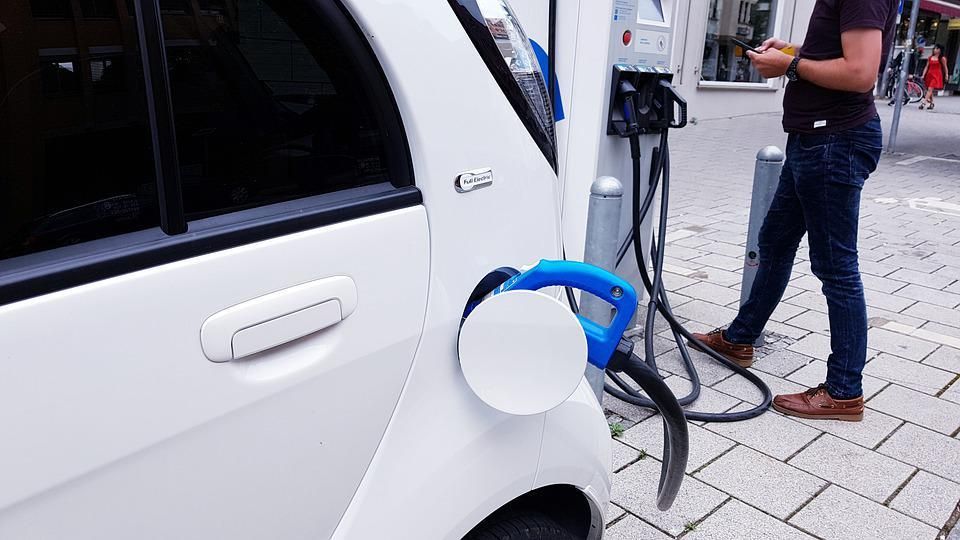
How Much Does It Cost to Charge an Electric Car?
Image Credit: LeeRosario / Pixabay
With gas prices at all-time highs and the continuing push to create a cleaner environment, electric vehicles are becoming more popular and automakers are making a significant shift towards the technology. Many people are unfamiliar with EVs, and undoubtedly one of the most popular questions asked is how much charging them costs.
The answer is: it depends.
The price of EV charging is dependent on where EV owners choose to charge their cars, the area owners live in, the speed of the chargers chosen, the make and model of EVs, the time of day the EVs are charged, the number of miles driven, and more.
Like websites such as GasBuddy.com for gas station locations and prices, a simple Internet search can provide a map of available chargers in the area as well as the current prices at each one. Various companies are working hard to install chargers all across the country, so it is expected that these maps will grow exponentially in the next few years.

Image Credit: IsmaelMarder / Pixabay
Charging at Home
Of course, most EV owners primarily charge their cars at their homes. The typical way electricity pricing works is homeowners get charged per kilowatt hour, or kWh. In the United States, the national average typically lies somewhere around $0.13 per kWh. Aside from free charging (more on that later), charging EVs at home is usually the most cost-effective method.
A full charge for most vehicles costs around $12 and provides up to 300 miles of range for the most efficient vehicles. On average, the home charging price for people who drive 1,000 miles per month would be around $40. Note that in some areas, electricity providers offer a discount for EV owners.
In various areas, the time of day or night EVs are charged will impact the overall charging price as well. Some electricity providers have a "time of use" system, which utilizes so-called "on-peak" and "off-peak" hours. These hours will vary based on the season, but prices typically rise in the late afternoon and evening.
Overall, charging EVs overnight typically costs less under these plans compared to daytime charging. This system is ideal for EV owners who drive somewhere around 35 miles each day.
It is important to note that EV charging equipment can be quite pricey, ranging anywhere from $400 to $6,500 depending on the brand and speed of the chargers. Basic home chargers typically come with the vehicle but utilize standard 120-volt outlets and take much longer to charge than other types of chargers that require installation, which can come at this hefty price. Many EV owners, however, are able to take advantage of a federal tax credit that can partially or completely offset this cost.
Free Charging
In an effort to expedite the transition to EVs, various locations around the U.S. provide free EV charging stations. These are usually businesses looking to gain customers, as it can be an attractive offering. Some automakers have also offered free charging to those who purchase their vehicles.
Note that the vast majority of these free chargers are Level 1 chargers, meaning they are the same 120-volt chargers used at homes that are typically much slower. For context, Level 1 chargers typically provide about 4 or 5 miles of range every hour, which is quite slow and unsuitable for people in a hurry. Nonetheless, it's free - unlike gasoline.

Paid Public Charging Stations
More paid public charging stations are popping up around the country, and the prices EV owners pay at each one will vary. States like Hawaii are more expensive than others such as Oklahoma, but average prices range between $0.30 to $0.60 per kWh. Depending on the size of an EV and its battery, a full charge costs anywhere between $10 to $50.
This is, of course, more expensive than the average $0.13 per kWh for at-home charging, but still cheaper than gasoline in most cases. Faster chargers - such as DC chargers, Tesla's Superchargers, and Level 2 chargers - will cost more but can provide much more mileage in an hour compared to Level 1 chargers. On average, Level 2 chargers add somewhere between 15 and 35 miles of range each hour, whereas DC chargers can add up to 100 miles of range each hour.
Many EV owners mainly charge their vehicles at home but utilize faster and more expensive charging for emergencies or when they go on road trips.
Note that paid stations are not necessarily always cheaper than filling a vehicle with gasoline. Depending on various factors, a very fast charge in a more expensive area could cost a comparable price to fueling a gas-powered vehicle. Most of the time, however, EV owners pay less to power up their cars; in fact, estimates state EV owners pay a third of what gas-powered vehicle owners do.
EV owners should do their research on public charging stations, as some charge by the minute whereas others charge per kWh. Also, some businesses will provide low-cost charging to paying customers or members.
Caveat: Vehicle Efficiency
A very important factor in the ultimate price to charge an EV is just how efficient the EV is in utilizing and preserving electricity. Similar to gas powered cars, some EVs are built to utilize electricity more efficiently and therefore need less charging meaning lower bills. More compact vehicles typically get better "mileage," whereas large EVs like pickup trucks can get much less.
Also, just like gas powered cars have average miles-per-gallon calculations, EVs have kWh calculations and these vary from model to model. For example, the popular Nissan Leaf gets around 30 kWh per 100 miles whereas Tesla Model 3s get approximately 25 kWh per 100 miles.
Of course, batteries that hold more electricity can get more range but will also cost more to charge. Keeping up with vehicle maintenance can help increase the efficiency of any EV, and housing the vehicle in a climate-controlled space (i.e., not in extreme hot or cold temperatures) can also preserve the battery and make it operate more efficiently.
It is also important to remember that EVs are different from gas powered vehicles in that they barely use energy when idling, such as sitting at a red light. Therefore, EV owners who solely drive in cities and not on the highway can get better mileage. On the contrary, gas-powered vehicles get more mileage on the highway, and idling in city traffic uses more fuel.

Image Credit: rdelarosa0 / Pixabay
Conclusion
Ultimately, if you are looking for a new vehicle and are considering purchasing an EV, you should definitely do some long-term math. While the average prices of most EVs are currently higher than gas-powered vehicles, you may end up saving money in the long term as you will eliminate the need to buy gasoline.
Updated